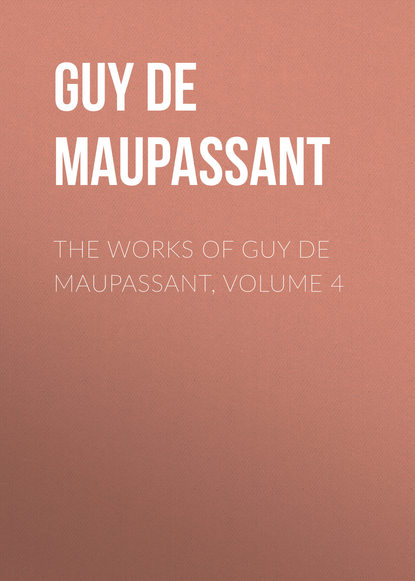По всем вопросам обращайтесь на: info@litportal.ru
(©) 2003-2024.
✖
The Works of Guy de Maupassant, Volume 4
Настройки чтения
Размер шрифта
Высота строк
Поля
"Good! That's good!"
"What do you want with him?"
"Listen! – you will tell him – nothing!"
He stared at her, more and more perplexed. At last, he put this question to her:
"Do you know him, too, yourself?"
"No," said she.
"Then what do you want with him?"
Suddenly, she made up her mind what to do, left her seat, rushed over to the bar where the landlady of the tavern presided, seized a lemon, which she tore open, and shed its juice into a glass, then she filled this glass with pure water, and carrying it across to him:
"Drink this!"
"Why?"
"To make it pass for wine. I will talk to you afterwards."
He drank it without further protest, wiped his lips with the back of his hand, then observed:
"That's all right. I am listening to you."
"You will promise not to tell him you have seen me, or from whom you learned what I am going to tell you. You must swear not to do so."
He raised his hand.
"All right. I swear I will not."
"Before God?"
"Before God."
"Well, you will tell him that his father died, that his mother died, that his brother died, the whole three in one month, of typhoid fever, in January, 1883 – three years and a half ago."
In his turn, he felt all his blood set in motion through his entire body, and for a few seconds he was so much overpowered that he could make no reply; then he began to doubt what she had told him, and asked:
"Are you sure?"
"I am sure."
"Who told it to you?"
She laid her hands on his shoulders, and looking at him out of the depths of her eyes:
"You swear not to blab?"
"I swear that I will not."
"I am his sister!"
He uttered that name in spite of himself:
"Francoise?"
She contemplated him once more with a fixed stare, then, excited by a wild feeling of terror, a sense of profound horror, she faltered in a very low tone, almost speaking into his mouth:
"Oh! oh! it is you, Célestin."
They no longer stirred, their eyes riveted in one another.
Around them, his comrades were still yelling. The sounds made by glasses, by fists, by heels keeping time to the choruses, and the shrill cries of the women, mingled with the roar of their songs.
He felt her leaning on him, clasping him, ashamed and frightened, his sister. Then, in a whisper, lest anyone might hear him, so hushed that she could scarcely catch his words:
"What a misfortune! I have made a nice piece of work of it!"
The next moment, her eyes filled with tears, and she faltered:
"Is that my fault?"
But, all of a sudden, he said:
"So then, they are dead?"
"They are dead."
"The father, the mother, and the brother?"
"The three in one month, and I told you. I was left by myself with nothing but my clothes, for I was in debt to the apothecary and the doctor and for the funeral of the three, and had to pay what I owed with the furniture."
"After that I went as a servant to the house of Mait'e Cacheux – you know him well – the cripple. I was just fifteen at the time, for you went away when I was not quite fourteen. I tripped with him. One is so senseless when one is young. Then I went as a nursery-maid to the notary who debauched me also, and brought me to Havre, where he took a room for me. After a little while, he gave up coming to see me. For three days I lived without eating a morsel of food; and then, not being able to get employment, I went to a house, like many others. I, too, have seen different places – ah! and dirty places! Rouen, Evreux, Lille, Bordeaux, Perpignan, Nice, and then Marseilles, where I am now!"
The tears started from her eyes, flowed over her nose, wet her cheeks, and trickled into her mouth.
She went on:
"I thought you were dead, too? – my poor Cèlestin."
He said:
"I would not have recognized you myself – you were such a little thing then, and here you are so big! – but how is it that you did not recognize me?"
She answered with a despairing movement of her hands:
"I see so many men that they all seem to me alike."

















